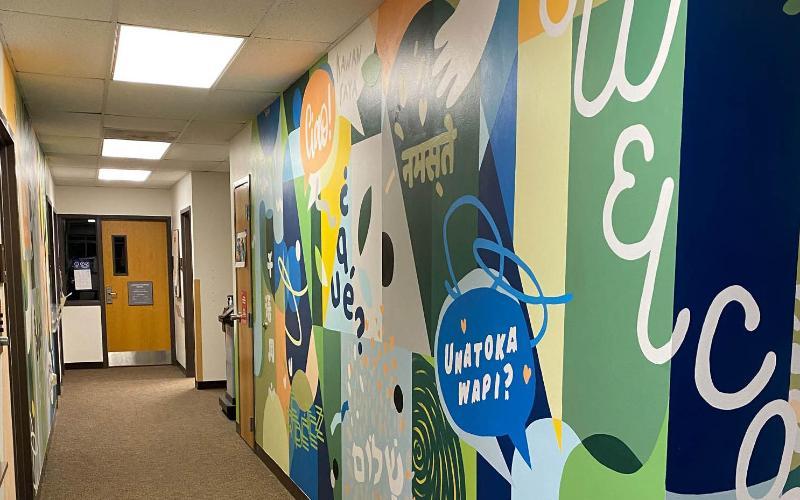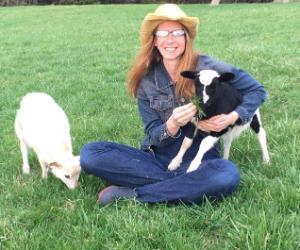Year One
The fellowship opens with Aequitas Public Humanities and Arts Studio I, in which students come together as diverse makers and scholars from a variety of interest areas around the theology, ideas, and methods of public humanities and arts. The course examines and practices the Public Humanities and Arts in light of God’s eschatological purpose for creation and human participation in that purpose. As it is a studio, special focus in the course will be on practicing methods for public humanities and arts projects. In the course, students will profile PHA projects, host and interview PHA practitioners, and develop proposals for projects in the public humanities and arts. The course culminates in an all-cohort PHA project within the Wheaton community.
Also during year one, Aequitas Fellows in Public Humanities and Arts share foundational courses in literature and history as exploratory foundations in methods from disciplines that feed into the public humanities and arts.
Year Two
In year two, Aequitas PHA fellows convene in a second studio course that allows for further theory and practice of public humanities and arts. Because it is a studio, practice of techniques associated with public humanities and arts is a continued focus here. The major work of the course is a collaborative, extended public-facing project with community partners. During the second year, students also take Philosophy of the Arts together.
Advanced Language Requirement
Students pursue languages beyond the regular language requirement at Wheaton for this fellowship, enriching their abilities in modern and classical languages of their choice. Advanced skills in modern languages help students pursue relationships with contemporary communities through conversation fluency as well as preparing students for study abroad, minors, and majors in languages. Advanced skills in classical languages may deepen their methodological strengths in history, biblical study, theological study, classics and comparative literary studies and offer opportunities for majors and minors in associated fields.
Electives
As a part of the certificate, students pursue elective course work in their specific areas of interest within the humanities and arts. In these courses, fellows achieve for themselves deepening methodological and canonical expertise in areas of interest. They achieve for the cohort a growing communal range of methods, genres, and expressions common to public humanities and arts, strengthening the community according to individual curiosity.
Internship
As they advance, Aequitas PHA fellows intern in a chosen domain of public humanities and arts. Students will complete a minimum of 60-hours of intern work in either a PHA-based organization or in a not-explicitly-PHA organization, if working toward particular PHA projects. This requirement may be met by any number of Wheaton program based internships, including but not limited to those offered in Wheaton in Chicago and HNGR. With approval, PHA-focused internships may be facilitated by any academic department for credit.
Capstone
An approved capstone project will complete the fellowship. Projects may include but are not limited to honors theses, peer-reviewed articles, community art projects, theater/directing projects (or dramaturgy for particular theater projects), HNGR independent study projects, exhibitions, digital humanities projects, documentaries, recitals, compositions, public writing projects, oral history projects, humanities/arts educational projects in various contexts, etc. Students begin background work on their project in AQTS 221 and will get approval for their project prior to beginning significant work. Students register for this course in the spring semester of the year they complete the project, and they will present their final projects in an Aequitas symposium.

 Tiffany Eberle Kriner, Ph.D. serves as Theme Coordinator of the Aequitas Fellows Program in Public Humanities and Arts. She is an associate professor of English at Wheaton College, where she's been on faculty since 2006. She graduated summa cum laude from Messiah College and earned an M.A. and Ph.D. in English at the University of Wisconsin-Madison, receiving a post-doctoral fellowship at the Erasmus Institute of the University of Notre Dame. At Wheaton, she teaches courses in American literature and writing and supports the
Tiffany Eberle Kriner, Ph.D. serves as Theme Coordinator of the Aequitas Fellows Program in Public Humanities and Arts. She is an associate professor of English at Wheaton College, where she's been on faculty since 2006. She graduated summa cum laude from Messiah College and earned an M.A. and Ph.D. in English at the University of Wisconsin-Madison, receiving a post-doctoral fellowship at the Erasmus Institute of the University of Notre Dame. At Wheaton, she teaches courses in American literature and writing and supports the